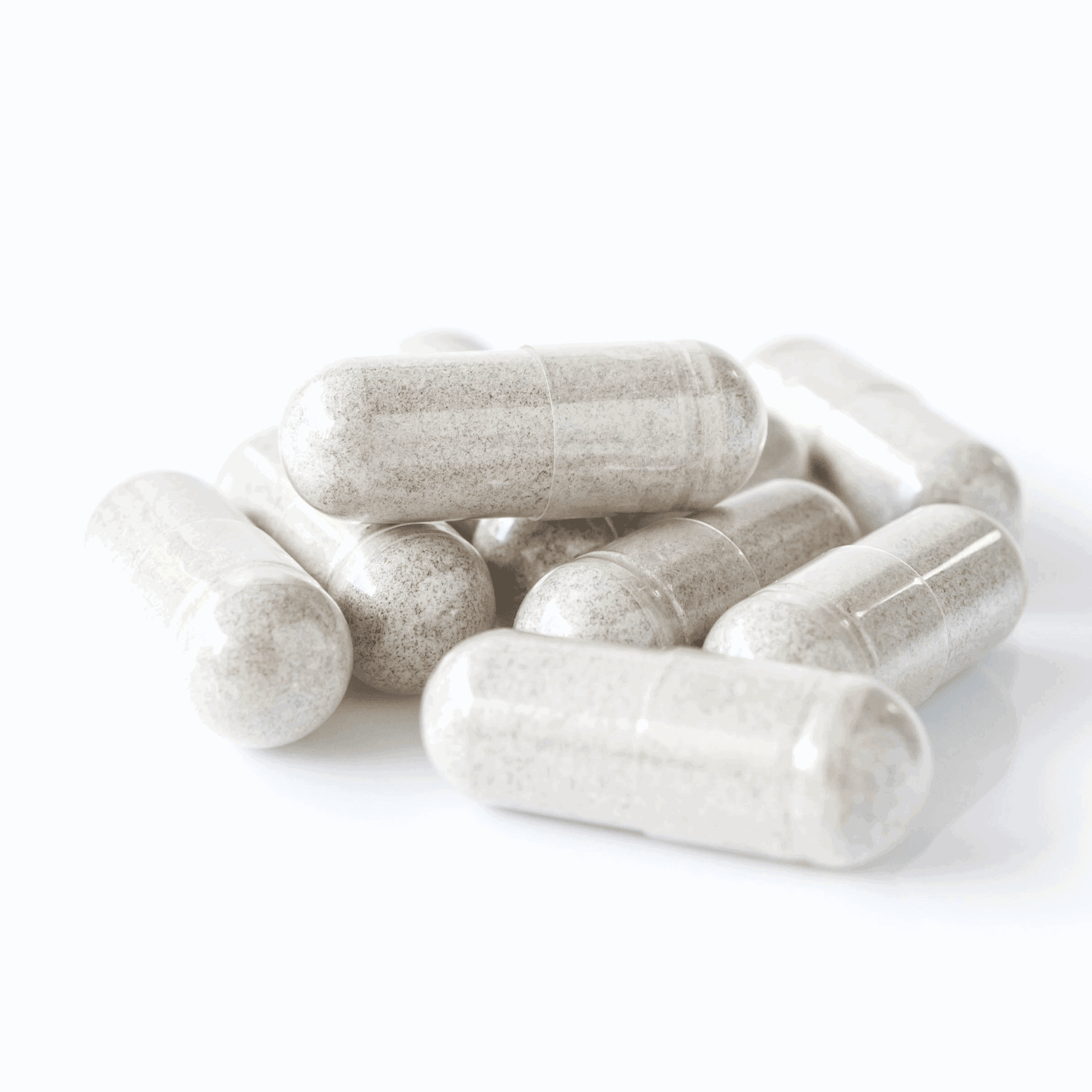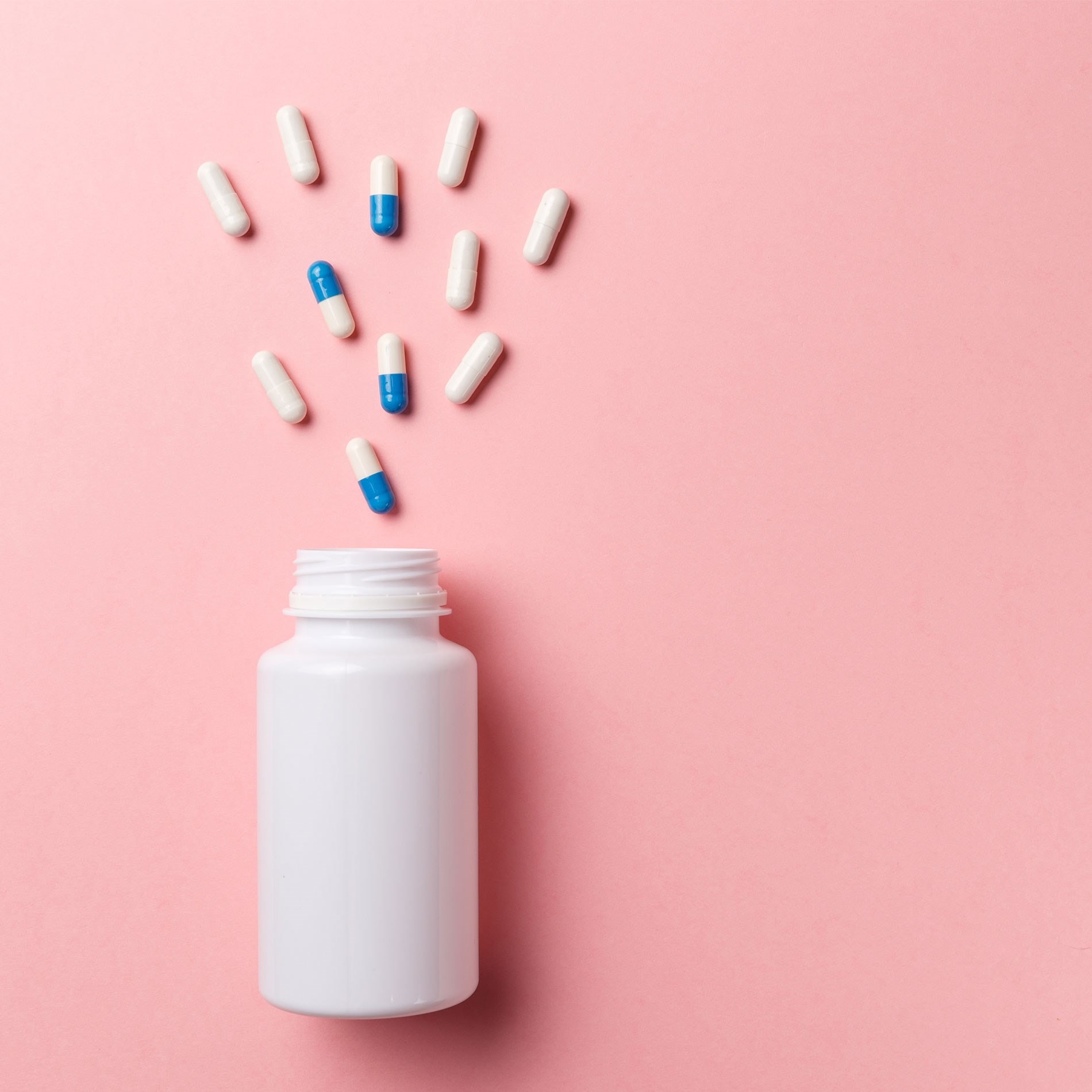A common question about probiotics is whether it is ok to take probiotic supplements every day. Whilst there may be a few exceptions to this rule, the general answer is yes, it's safe, and usually recommended, to take them daily.
It's important to understand that probiotics are a natural supplement and not a medicine. They are best used as part of a daily health regime, rather than as a 'quick fix' option, though there are some situations where certain strains are taken for a short time, such as alongside antibiotics. Fermented foods containing live cultures have been part of traditional diets in many different ethnic groups for centuries. People have been consuming probiotics for generations in foods such as sauerkraut, kimchi, kefir and kombucha , but it has only been more recently that we have been able to consume specific strains in an easy-to-take capsule form.
- Why should you take probiotics?
- Benefits of taking probiotics daily
- Is it safe to take probiotic supplements daily?
- Is it okay to take probiotics long term?
- When should some NOT take probiotics?
Why should you take probiotics?
Many people choose to take probiotics every day, whilst some might just use them periodically or whenever they feel that they need a little support. Whichever way you find works best for you, it is worth remembering that many factors can negatively affect the probiotic colonies in our gut.
So, whilst you might think that once you have established good gut flora that it can then be left to its own devices, in reality our lifestyles are now so challenging for our microbiome that many of us need to nurture it on an ongoing basis.
Most people know that antibiotics do not differentiate between the good and bad bacteria in our guts, and therefore negatively impact on our probiotic colonies, but even if we don't take them ourselves, it's possible there may be other sources of antibiotics in our food chain, such as in meat and other animal products. These have a similarly negative impact on our gut flora.
In addition, we are often exposed to chemicals such as chlorine in our drinking water. Chlorine is a strong anti-microbial agent, and whilst it helps to keep undesirable bacteria out of our water supply, it also damages our delicate gut flora.
Other factors that deplete our flora include, over-consumption of sugar, contraceptive pills, HRT medication and stress. With all of these things in mind it is easy to see why a daily top-up of probiotics might be a good idea for many people. Like most vitamins and minerals, we do not produce probiotics ourselves.

Benefits of taking probiotics daily
In the majority of studies that investigate the effects of taking probiotics, researchers administer a daily dose to participants (for example, this study from 20041). This indicates an advantage to taking probiotics every day. Evidence for daily supplementation dates back to the 1990s2, and therefore this is now established best practice for probiotic use.
In a small study3, 10 women were allocated to either a probiotic or control group to investigate whether Lactobacillus rhamnosus GR-1® and Lactobacillus reuteri RC-14® could colonise in the vagina. The women took either the probiotic or placebo supplement orally for 14 days, and follow-up faecal and vaginal swabs were collected on day 0, 7, 14 and 21. It was found that the strains were able to colonise in the vaginal region after day 7 and 14, but that once the probiotic intake stopped at day 14, neither strain was detected after a further week (at day 21). These findings indicate the need to take a probiotic supplement daily in order for them to colonise and exert their health benefits, and that if you stop taking them, the probiotics will 'exit' the body within a week.
A further study4 looked at the ability of Lactobacillus rhamnosus LGG® to survive and reach the colon alive, and also its longevity once in the gut. 76 volunteers took the probiotic every day, either freeze-dried or in the form of fermented milk. L. rhamnosus LGG® was recovered in all of the faecal samples from those who were given the fermented milk form, and in 86% of samples from those who were given the freeze-dried form. Once the participants stopped taking the strain, it was found that after 4 days, L. rhamnosus LGG® was present in 87% of the individuals' stools, but after a week, this number dropped to 33%. These findings too support the idea that once probiotic consumption has ceased, the probiotics are unlikely to remain in the gut for more than a week.
Recent reviews of therapeutic probiotic use also recommend daily probiotic supplementation. One review, published in 20105, specifically analysed key clinical studies, almost all of which administered probiotics daily. The review itself was published with the intention of being a 'state of the art update of the use of probiotic formulations in daily practice'. Furthermore, the 'Recommendations for Probiotic Use - 2015 Update6' also indicated that taking probiotics on a daily basis was best. The contemporary research they reviewed almost exclusively used daily probiotic supplementation.
Is it safe to take probiotic supplements daily?
One concern people often have is whether their digestive system will become ‘lazy’ if they take probiotics every day. But, rest assured, probiotics are not thought to be like laxatives which can cause the gut to become 'lazy' and reliant on them in order to function. There is no current research to suggest the body becomes dependent on probiotics.
Healthcare practitioners can read more on the subject of long-term use of probiotics, and whether that can lead to dependency, in the following FAQ: 'Is there a risk of dependency when taking probiotics?'
In regards to overdosing, even when taken on a daily basis and at high doses it is extremely difficult to overdose on probiotics. For more on this subject you may like to read our FAQ; 'Is it possible to overdose on probiotics?'

Is it okay to take probiotics long term?
Probiotics are transient, meaning they do not colonise in the gut or vagina long term, instead exerting their effects during short term persistence. This is the reason why you need to take probiotics day after day. Safety is not a concern - there are no indications of a maximum duration of intake from any probiotic producers.
Acute toxicity studies in rats (at 1000 x dose) indicate probiotics are safe over a long period of time, even at high doses. In terms of humans, taking a dose of 50 billion live cultures per day constitutes just a tiny fraction of our microbiota, so is unlikely to cause a problem long term.
One strain, Lactobacillus rhamnosus HN001, was studied over a long period of time, 10 years, with no adverse side effects or translocation. The researchers concluded that probiotics are safe to take long term.
When should someone NOT take probiotics?
Probiotics are some of the safest natural supplements available, and have very few contraindications. There are a few groups of people who it is recommend exercise a degree of caution when they are considering supplementation with live cultures, an example of which is people who are immune-supressed (or taking immune suppressive medication), and people with dark blood in their stools. Under these circumstances, it would be wise to seek the advice of a GP before considering probiotic supplementation. In fact if ever in doubt, always speak to your doctor about any health supplements. For more information see this contraindications FAQ.
With regards to medications and natural remedies, there are no known contraindications. The only point to take in to account here is if a supplement has antibacterial or anti-fungal properties. If it does, like garlic for example, then it is recommended that you take the probiotic at least a couple of hours either side of the other supplement, so as not to damage the bacteria. But with regards to safety, probiotics can be taken alongside all natural remedies without any problem.
Key takeaway
Many people feel that probiotics give them that extra bit of confidence and a little health boost. Due to unfavourable lifestyle factors that compromise our gut flora it may well be better to replenish our probiotic colonies on an ongoing basis, and this is why many people choose to take probiotics every day.
You might also be interested in the following articles:
Gut Health - All You Need To Know
References
- Mimura, T. et al. (2004). 'Once daily high dose probiotic therapy (VSL#3) for maintaining remission in recurrent or refractory pouchitis'. Gut, 53(1): 108-114
- Jacobsen et al. (1999). 'Screening of probiotic activities of 47 strains of Lactobacillus spp. by in vitro techniques and evaluation of the colonisation ability of 5 selected strains in humans'. Applied and Environmental Microbiology; 65(11): 4949-4956
- Morelli L et al. (2004). 'Utilisation of the intestinal tract as a delivery system for urogenital probiotics'. Journal of clinical gastroenterology; 38(6): 107-110
- Goldin BR et al. (1992). 'Survival of Lactobacillus species (strain GG) in human gastrointestinal tract'. Digestive diseases and sciences; 37(8): 121-1218
- Iannitti, T. and Palmieri, B. (2010). Therapeutical use of probiotic formulations in clinical practice. Clinical Nutrition, 29(6): 701-725.
- Floch, M., et al. (2015). Recommendations for Probiotic Use—2015 Update. Journal of Clinical Gastroenterology, 49(Supplement 1): S69-S73.
- Image references: http://www.huffingtonpost.com/lauren-slayton/benefits-of-breakfast_b_4179815.html
Popular Articles
View all Probiotics articles-
Prebiotics14 Aug 2023
-
Probiotics12 Oct 2023
-
Probiotics11 Oct 2023


